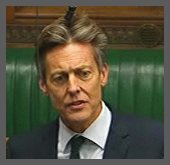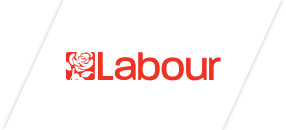 On diesel emissions:
On diesel emissions:
Mr Ben Bradshaw (Exeter) (Lab)
The penalty is going to be the millions of pounds of fines faced by our constituents because of the Government’s failure to act. When are we going to hear about some practical action from the Government to reduce the number of diesel vehicles? The Minister has not answered the question. Air pollution is the second biggest avoidable killer after smoking.
Mr Hayes
Let us be clear: we have made real progress to date. In 2016, the UK was the largest market for ultra-low emission vehicles in the EU and a global leader in this development.
I am sure that the right hon. Gentleman, in the spirit of bipartisan generosity that characterises all he does in the House, will welcome the announcement in the autumn statement setting out a further £290 million of funding for ultra-low emission vehicles. He says that he wants action, but what more action does he want than the policy, the legislation and the resources—we are taking action. Perhaps the right hon. Gentleman is feeling grumpy because it is Thursday morning, but he really ought to welcome that.
On Jamal al-Harith:
Mr Ben Bradshaw (Exeter) (Lab)
It is not good enough for the Minister, as the Prime Minister’s official spokesman did yesterday, simply to hide behind intelligence as an excuse for not answering the most basic questions about this dreadful case, so let me try a policy question: what assessment has he made of the impact of the coalition Government’s disastrous decision to scrap Labour’s control orders and his ability to monitor people like this?
Mr Wallace
The right hon. Gentleman forgets the position of Labour’s control orders before the courts. Funnily enough, as I pointed out earlier, his Government did not seem to have quite the right regard for the Human Rights Act 1998 or the rule of law that they should and were constantly seeing their measures struck down. We do believe that TPIMs are a good policy—one of the tools in the toolbox to enable us to monitor these people. We will use them wherever we can and whenever we need to do so, to make sure that we do everything to keep people who pose a threat under control. So far, we have not abandoned them or failed to use them when the need presents itself.
On NHS SBS:
Mr Ben Bradshaw (Exeter) (Lab)
I raised my concerns about the contracting out of the patient record service to SBS back in 2011, and I was told by the Secretary of State’s predecessor that this was about saving money. Will he tell us how much money has been saved, given all the problems, and how many of the 708,000 patients affected are in the south-west?
Mr Hunt
The south-west was one of the regions affected, as I mentioned in my statement. I am happy to write to the right hon. Gentleman to tell him exactly how many patients I think were affected in the south-west. I gently say to him that the use of the private sector was championed when his Government were in office and when he was a Health Minister. I know that this is not very fashionable in his party at the moment, but on this side of the House, we think that if we want the NHS to be the safest and best in the world, we should be open—
On cider duty:
Mr Ben Bradshaw (Exeter) (Lab)
When considering beer duty, will the Minister maintain, or at least not further erode, the differential with cider duty? Labour’s lower cider duty has led to a fantastic renaissance in both cider drinking and orchard planting in England, but if the differential is narrowed any further I am afraid it will do untold damage to our cider makers.
Jane Ellison
I am well aware of the sensitivities around the duty bands, on which we have received a number of representations, and of the renaissance not just in the industry to which the right hon. Gentleman refers but, for example, in respect of the number of microbreweries and the flourishing investment in that area. There have been a number of good news stories in this sector in recent years.

